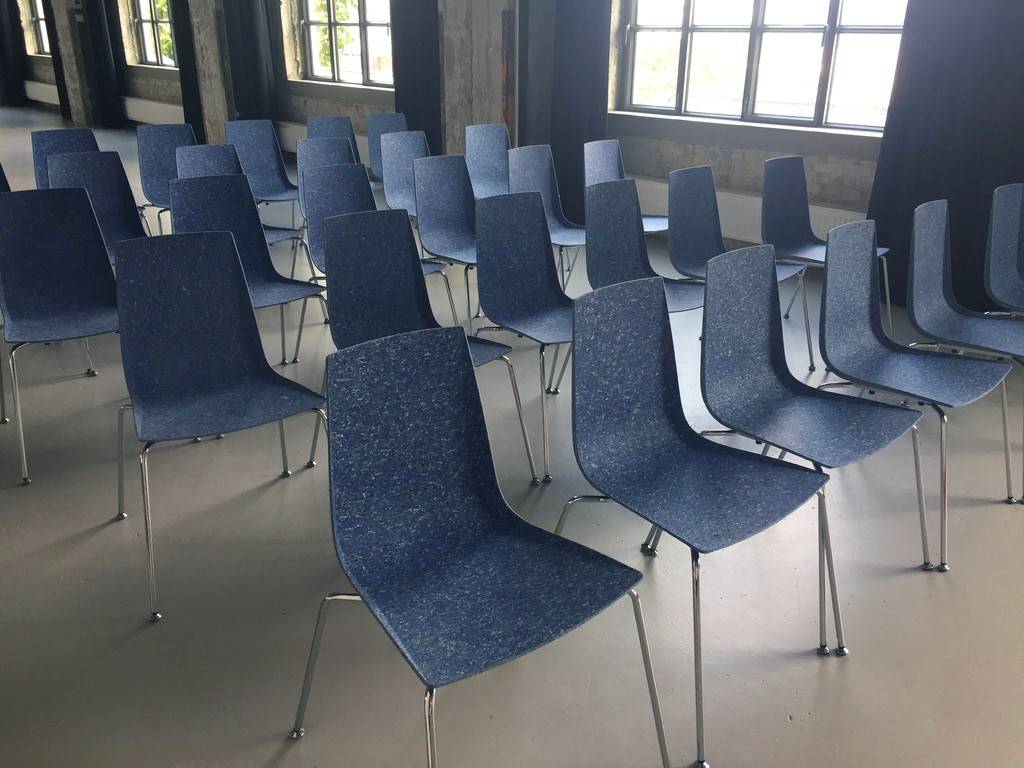DenimX: We can use the waste that has no other use
31/03/2021

The Dutch company’s latest designs are injection-moulded hangers that incorporate the distinctive blue from the dyed fibres, and tiles made from denim and coffee waste, which are suitable for shop fittings and table tops.
Industrial designer Marc Meijers founded the company in 2017, wanting to use his materials know-how to address the problem of textiles waste. An estimated £140 million worth of clothing is sent to landfill each year in the UK alone, according to the Waste and Resources Action Programme.
One of the advantages from a waste perspective, Mr Meijers told Inside Denim, is that while the longer fibres are needed when adding recycled content to make new jeans, every bit of waste can be accounted for in this process, including blends that are difficult to separate. “There's already a lot done with the textiles-to-textiles waste, which is very good and we encourage that, but in this case we can use the waste that has no other use.”
The binders are mainly bio-based polymers, but a range of materials including recycled plastics can be used, as well as other textiles fibres. This means properties can be tailored to suit different end-uses, including lamps, chairs and home accessories.
“We reverse engineer, so we need to know the properties of the product we are making first, and then we design around that,” said Mr Meijers. “Does it need to be fire resistant, or need to bear weight, for instance? A bag has very different requirements to a chair. Then we go back and choose the right recipe and the right production technologies.”
Previous projects include a collaboration with Nike in the Netherlands, where DenimX supplied acoustic panels for the office in its logistics centre, and a tie-up with the Dutch Ministry of Defence, making motorbike panels from old army uniforms. “Nike was looking for sustainable solutions, especially from overstock. There was a clear vision on sustainability, and this fitted perfectly within their story,” said Mr Meijers.
DenimX can either provide a full service, which includes design, engineering and production, or a co-design and co-engineering partnership for companies looking to recycle overstock and waste into other types of products.
He added that while small-scale projects can be fun, it is the bigger-volume partnerships and a combination of recycling initiatives that will help make a dint in the mountains of waste. “We need all these initiatives working together in order to deal with this problem,” he said.
Read our Q&A with Marc Meijers in the Dialogue section of the website.
Image: A range of chairs made with denim waste. Credit: DenimX










